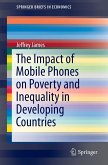The book deals with precarity within the digital age and focuses on media change and social insecurity. Change arising from digital developments takes place on micro-, meso- and meta-levels and have always social implications. Concepts such as Social Media, eHealth and Digital Capitalism, Informational Capitalism and Social Exclusion, Digital Globalization and Motility frame the social dynamics and implications of changes in digital media. These changes evoke a double precarity or stable unstability: Social practices throughout the diverse societal fields are questioned through the media change which leads to a digital age. The ongoing media change requires new social practices - what evokes precarity as an ongoing insecurity how to face the `new digital world´.As a socio-economic phenomenon and effect of neoliberal policy precarity changes life planning and self-narrations of the affected individuals. Precarity and neoliberal subjection-processes manifest in the digital age and are performatively re-produced by the way new media are used.
Bitte wählen Sie Ihr Anliegen aus.
Rechnungen
Retourenschein anfordern
Bestellstatus
Storno








